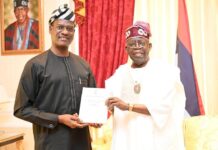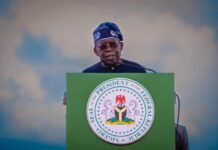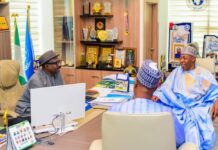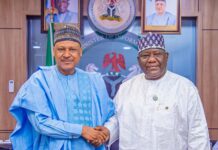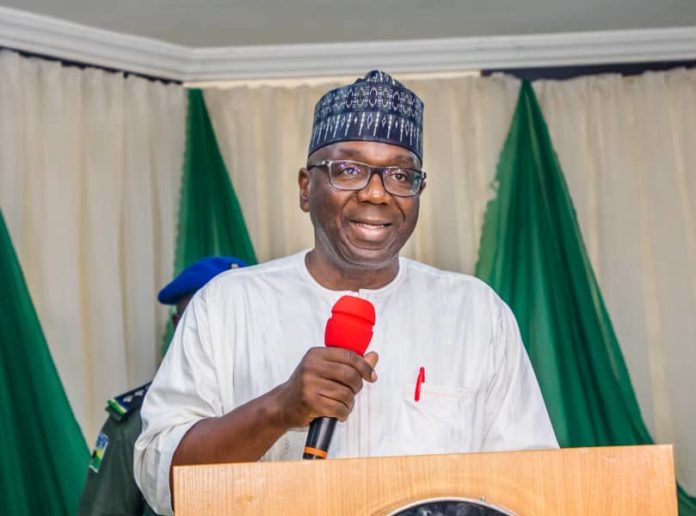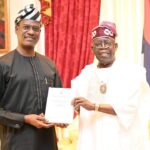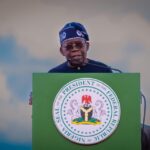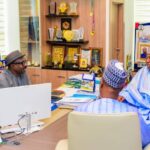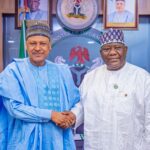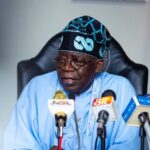Kwara State Governor AbdulRahman AbdulRazaq on Thursday flagged off the biometric registration of transporters who have been slated to receive soft loans to cushion the effects of the COVID-19 lockdown in the state.
AbdulRazaq said at least N100m would be dispensed as non-interest loan to 20,000 transporters after the enumeration that is going on across the state under the Kwara State Social Investment Programme — which components include conditional cash transfer for the aged (Owo Arugbo), market moni for petty traders, and K-power which targets the youths and unskilled segments of the society.
The soft loan to the transporters is a first in the country to lessen the impact of the lockdown.
AbdulRazaq has also announced the extension of the lockdown of the state by another 14 days to flatten the curve of transmission of the virus — in accordance with the position of the Federal Government and the Nigeria Governors’ Forum.
He added that Kwara recorded two new cases of COVID-19 early Thursday, bringing the number of confirmed cases to 11.
The two new cases are contacts of the previous confirmed cases, AbdulRazaq told reporters in Ilorin, the state capital, shortly after flagging off the enumeration exercise for the transporters at Government Secondary School Maraba.
“The lockdown for another two weeks is to reduce the number of cases. As you can see, Kano is going up, Lagos is going up. Even in Kwara, we have two more new cases. So, there is need for boundaries to lockdown. Essentially, each state has different policies on lockdown but we want to ensure that people are not moved across boundaries to transmit the virus.”
He said the internal restrictions of vehicular movements in the state remain in force while the government steps up measures to gradually lift the restrictions and rejuvenate the economy, including mandatory use of face masks which would soon be distributed.
He said the face masks would be mass-produced by indigenous tailors who have already been briefed.
The Governor said the beneficiaries of the loan, who might get between N5,000 and N10,000, are to refund the money in trickles long after the COVID-19 crisis is over, adding that the exercise also offers the government an opportunity to get accurate data of people in the informal sector for proper planning.
AbdulRazaq said the programme is going on simultaneously with other components of the KWASSIP to lessen the impact of the economic downturn on the people.
“We’re happy to be here to fulfil our promise of having some form of safety net (for the poor). This is about carrying everybody along and leaving no one behind,” the Governor said.
“The social investment programme is a key programme of President Muhammadu Buhari and I am one of those who believe in his programmes. During the campaign, the Vice President was here to launch market moni and trader moni programme. I was with him and saw the impact. Then, after the electioneering campaign, I went to the villages and saw indeed that there was a real impact. The N-Power and other programmes were really impactful and based on that we decided to set up the Kwara State Social Investment Programme (KWASSIP).
“This programme for Okada riders and other transport workers was not originally part of the programme. It was meant to be at the back end of the programme but we quickly activated it because of the impacts of COVID-19 and the stay at home order on businesses and the poor. That is why we decided to enumerate them and give them aid to survive under the lockdown. This will also be extended to other segments of the economy. We have to drive our economy. Various programmes are going on. We have over road constructions which will be inaugurated by 29th of May. We have school rehabilitation programmes ongoing. So, essential work will go on. We have also allowed our farmers to go to their farms. So, we are not allowing the economy to grind to a halt.”
Apart from registered farmers, petrol stations, hospitals and pharmacies, the government had earlier exempted vehicles carrying foods and drugs and essential workers such as health workers and journalists from the restriction order.






